Professors receive new University appointments as DSPs, named chairs
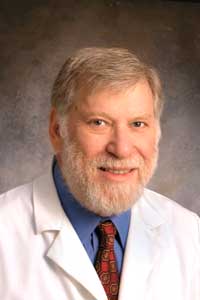 S. Murray Sherman 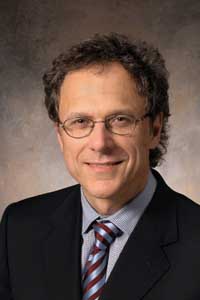 T. Conrad Gilliam | | |
Seven University faculty members have received named chairs and distinguished service professorships, which became effective Friday, Oct. 1.
Two new professors who joined the Chicago faculty in July, T. Conrad Gilliam and S. Murray Sherman, were named the Marjorie I. and Bernard A. Mitchell Professor in Human Genetics and the Maurice Goldblatt Professor in Neurobiology, Pharmacology & Physiology and the College, respectively. Both Gilliam and Sherman serve as Chairmen of their respective departments, as well (See “University welcomes eight new scholars,” University of Chicago Chronicle, September 23, 2004, Vol. 24, No. 1).
James Madara, Dean of the Division of the Biological Sciences and the Pritzker School of Medicine and Vice President for Medical Affairs, was named the Richard T. Crane Distinguished Service Professor in Pathology in July (See “Faculty members named to new professorships,” University of Chicago Chronicle, September 23, 2004, Vol. 24, No. 1). He recently has been named the Sara and Harold Lincoln Thompson Distinguished Service Professor in Pathology.
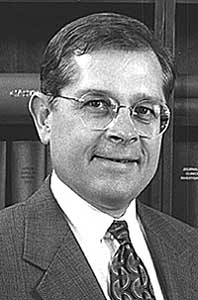 James Madara | |
Wen-Hsiung Li, the George Beadle Distinguished Service Professor in Ecology & Evolution, the Committee on Evolutionary Biology and the College, has been named the first James D. Watson Distinguished Service Professor.
Li’s research interests include evolutionary genomics, molecular evolution, bioinformatics and computational biology, population genetics, and human genetics.
Since the explosion of DNA sequence data in the 1980s, Li has developed methods for inferring evolutionary relationships from comparison of DNA sequences. He was particularly influential in establishing methods for estimating the degree of accuracy of evolutionary trees and the statistical confidence that can be placed in them.
 Wen-Hsiung Li | |
Li, who has studied the “molecular clock,” was the first to determine it runs at a speed dependent on generation time: the shorter the generation, the faster the clock. For example, the clock runs five times as fast in rats and mice as it does in monkeys and humans. This discovery has led to a better understanding of the divergence of evolutionary lineages.
He also has been influential in showing that the mutation rate in males is higher than in females and has demonstrated this for both higher primates, including humans, and for rodents.
Li is the recipient of a 2003 Balzan Prize for genetics and evolution research from the International Balzan Foundation. He also is a fellow of both the National Academy of Sciences and the American Academy of Arts and Sciences.
Li, who joined the Chicago faculty in 1999, is the former Betty Wheless Trotter professor in medical sciences at the Human Genetics Center at the University of Texas Health Science Center.
He received his B.S. in civil engineering from Chung Yuan College of Sciences and Engineering in Taiwan in 1965; an M.S. in geophysics from National Central University in Taiwan in 1968; and a Ph.D. in applied mathematics from Brown University in 1972.
Three professors in the Law School also have been appointed to named chairs. Tracey Meares has been named the Max Pam Professor in the Law School; Adrian Vermeule has been named the first Bernard Meltzer Professor in the Law School; and David Weisbach has been appointed the first Walter Blum Professor in the Law School.
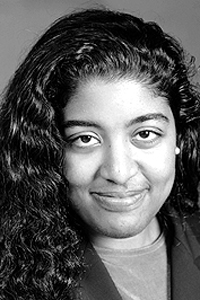 Tracey Meares | |
Tracey Meares, Professor in the Law School, has been named the Max Pam Professor.
Her teaching and research interests focus on criminal procedure and criminal law policy, with a particular emphasis on empirical investigation of these subjects.
In addition to teaching at the Law School, Meares has an appointment as a Research Fellow at the American Bar Foundation. She also is a faculty member of the University’s Center for the Study of Race, Politics and Culture.
Meares and co-author Dan Kahan wrote the book Urgent Times: Policing and Rights in Inner City Communities. Meares also is the author of many journal articles, including “Praying for Community Policing,” “Punishment, Deterrence And Social Control: The Paradox of Punishment in Minority Communities,” “Punishment: Three Objections to the Use of Empiricism in Criminal Law and Procedure—And Three Answers,” and “Place and Crime.”
Meares currently teaches Criminal Law and also has taught Criminal Procedures, the Law of Lawyering and the Legal Profession, Ethnography and the Law, the Juvenile Justice System, and Issues in Poverty and the Law.
She received her B.S. in general engineering from the University of Illinois, and her J.D. from Chicago’s Law School. She joined the University faculty in 1994, after serving as an honors program trial attorney in the Antitrust Division of the United States Department of Justice.
Prior to serving as a Department of Justice prosecutor, Meares clerked for Judge Harlington Wood Jr. of the U.S. Court of Appeals for the Seventh Circuit.
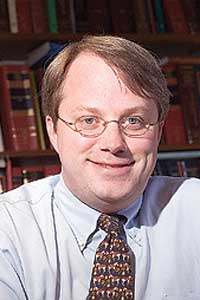 Adrian Vermeule | |
Adrian Vermeule, Professor in the Law School, has been named the first Bernard Meltzer Professor.
Vermeule, whose principal scholarly interests include legislation, constitutional law and administrative law, clerked for Judge David Sentelle of the U.S. Court of Appeals for the District of Columbia and for Associate Justice Antonin Scalia of the U.S. Supreme Court.
He also worked as an associate in appellate and general litigation at the law firm of Kirkland & Ellis in Washington, D.C., prior to his academic career.
Before coming to the Law School, Vermeule had fellowships at the Georgetown University Law Center and the George Washington University Law School.
Among Vermeule’s many published articles are “Emergencies and Political Change,” “The Constitutional Law of Congressional Procedure,” “Transitional Justice as Ordinary Justice,” and “Controlling Agencies through Appointments.”
Vermeule has been honored numerous times for his teaching and scholarship, including receiving the Graduating Students’ Award for Teaching Excellence in 2002 and 2004, and the 2003 Paul M. Bator Award from the Federalist Society, which is presented to an outstanding legal scholar under 40.
He graduated from Harvard College in 1990 with an A.B., summa cum laude, and was elected to Phi Beta Kappa. He received his J.D. from Harvard University Law School, magna cum laude, in 1993.
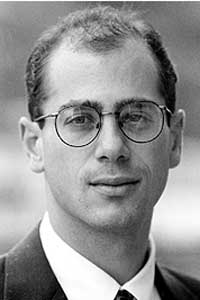 David Weisbach | |
David Weisbach, Professor in the Law School, has been named the first Walter Blum Professor.
Weisbach, whose primary scholarship interests are related to federal taxation, is the author of many journal articles, including most recently “The (Non)Taxation of Risk,” “Corporate Tax Avoidance,” “The Integration of Tax and Spending Program,” and “Taxation and Risk-Taking with Multiple Tax Rates.”
Weisbach has clerked for Judge Joel Flaum of the U.S. Court of Appeals for the Seventh Circuit and was an associate in the law firm of Miller & Chevalier. In 1992, Weisbach joined the Department of Treasury, where he worked as an attorney and advisor in the Office of the Tax Legislative Counsel, and subsequently, as associate tax legislative counsel.
In 1996, he was appointed associate professor of law at Georgetown Law Center and in 1998, joined the Chicago Law School faculty. He also has been a trustee of the American Institute of Tax Policy since 2003.
Weisbach teaches Corporate Finance, Taxation of Corporations, Law and Economics, Economic Analysis of the Law, and Tax Policy and Public Finance.
He received his B.S. in mathematics from the University of Michigan in 1985; a certificate for advanced studies in mathematics from Wolfson College, Cambridge University, in 1986; and a J.D. from Harvard University Law School in 1989.
Editor’s note: Catherine Gianaro, catherine.gianaro@uchospitals.edu, and Peter Schuler, pm-schuler@uchicago.edu, contributed to this article.
![[Chronicle]](/images/sidebar_header_oct06.gif)